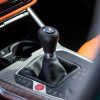In a quiet southern Taipei alleyway, an ageing golden retriever peers sleepily from a pram being pushed by his elderly owner. A few minutes later a stroller pushed along by a young woman rolls past, carrying a brindle-cross.
That afternoon a puppy wearing a tuxedo and rainbow bowtie is wheeled through the heaving crowds of the Taipei Pride parade.
Dogs in prams are a common sight in Taiwan’s capital, where the city’s metro system allows pets on board only if they are in contained carriers. But observers say the trend goes beyond the practical and reflects changing attitudes towards pet ownership and a growing propensity for “fur babies” amid a declining birthrate in Taiwan.
Hugs, sequins and rainbows as Taiwan enjoys victory over coronavirus
Read more
Taiwan’s birthrate is among the lowest in Asia, and is due to delayed marriages, analysts say. Having children outside of marriage is still socially unacceptable, and economic barriers to having children include minimal maternity leave entitlements.
At the same time, pet ownership is skyrocketing. In September analysts estimated the number of Taiwanese pets had overtaken the number of children aged under 15.
As a result the pet accessory retail market is booming, and was worth US$1.52bn a year in 2015, according to Taiwan’s pet expo. Market research firm Euromonitor International said it has continued to grow ever since.
A spokeswoman for pet pram manufacturer, Ibiyaya, said sales had increased more than five-fold between 2002 and 2015, and it was still growing, with more suppliers coming on to the market. “The industry is getting more competitive while customers have more options when it comes to choosing the right pet stroller for their fur kids,” she said.
Strollers, sunglasses, raincoats and even socks for dogs are also increasingly common.
Wu Hang, the executive director of the Environment and Animal Society of Taiwan (East), worries that the desire for these items stem from “an anthropocentric way of thinking about animals and treat them as accessories for human fulfilment, rather than focusing on the animal’s needs”.
“This can lead to serious welfare problems when the best interests of the animal are overlooked.”
Hang said it was “heartening” to see a growing number of positive interactions between humans and animals, and strollers were good for improving the life of old or disabled animals, and getting them through busy urban areas, but they still needed exercise.
In Da’an Forest Park, Syin and Han are wheeling their two dogs and cat to the vet. Syin says they usually walk the dogs around the park on leashes, but today they’re in a hurry. “They still get exercise. This is for convenience so you can take them on the subway and to restaurants.”
Syin says they grew up with lots of animals around them, but she’s seen the rate of pet ownership grow, especially the younger generations.
“The first thing that comes to mind, is we don’t want to have children,” says Syin, when asked why.
“You spend more money, you have more responsibility. Even though we have to spend money and have responsibility for [our pets], but children are … I don’t know, I’m not a baby person,” she laughs.
Tom Parker, a UK citizen, Taiwan resident and owner of a Boston Terrier named Bené, says his wife makes him shelter their dog under an umbrella when it rains, but if she’s not around the dog gets wet.
“Dogs in Taiwan are pampered and well cared for, but can also be an accessory to show off, and the more portable the better,” he says.























































Свежие комментарии